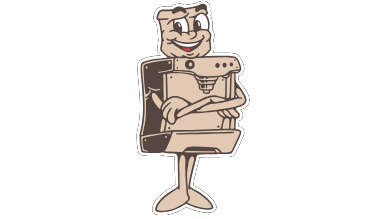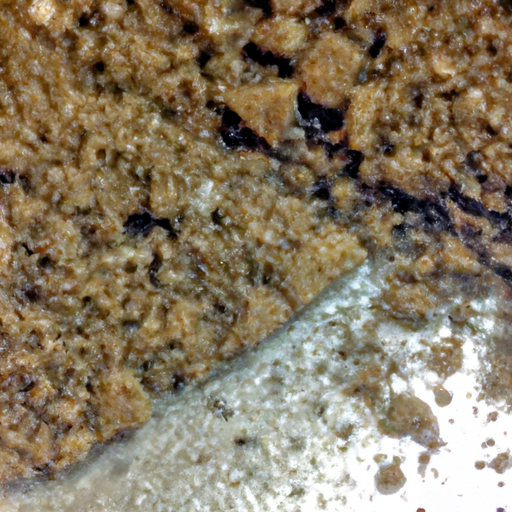You might be wondering, “Can I use tap water in my coffee maker?” Well, the answer is yes, you can! While some people might prefer using filtered water or spring water for their morning brew, tap water is perfectly safe to use in most coffee makers. In fact, using tap water can be a convenient and budget-friendly option. However, it’s important to consider the quality of your tap water and the potential impact it may have on the taste and longevity of your coffee maker. So, let’s delve into the details and find out if tap water is the right choice for your brewing needs.
Understanding Tap Water
What is tap water?
Tap water refers to the water that comes directly from your faucet or tap in your home. It is sourced from underground or surface water and is treated by the local municipality or water authority to make it safe for consumption.
Composition of tap water
Tap water is composed of various elements and minerals that are naturally present in the water sources. These minerals include calcium, magnesium, potassium, and sodium. Tap water may also contain trace amounts of pollutants or impurities such as chlorine, lead, and pesticides, depending on the quality of the water source and the treatment process.
Factors affecting tap water quality
There are several factors that can affect the quality of tap water. These factors include the source of the water, the treatment process it undergoes, the condition of the distribution system, and the presence of any contaminants or pollutants. Additionally, factors such as location and water source can cause variations in tap water quality between different regions.
Effects of Tap Water in a Coffee Maker
Mineral deposits and scaling
One of the primary effects of using tap water in a coffee maker is the buildup of mineral deposits and scaling. The minerals present in tap water, particularly calcium and magnesium, can accumulate over time and form a film or scale on the internal components of the coffee maker. This scaling can affect the performance of the coffee maker, leading to slower brew times and potential damage to the machine.
Impact on taste and flavor
Tap water can also have an impact on the taste and flavor of your coffee. The minerals and impurities in the water can alter the taste, making the coffee taste bitter or off-flavored. Chlorine, which is commonly used as a disinfectant in tap water, can also contribute to a harsh taste in the brewed coffee.
Damage to coffee maker components
The minerals present in tap water can cause damage to the internal components of your coffee maker. The buildup of mineral deposits can clog the water lines, valves, and heating elements, affecting the overall performance and longevity of the machine. Over time, this can lead to costly repairs or the need for a replacement coffee maker.
Determining Water Quality
Water hardness
Water hardness refers to the concentration of minerals, particularly calcium and magnesium, in the water. Hard water is high in mineral content, while soft water has a lower mineral concentration. Determining the hardness of your tap water can help you understand the potential impact it may have on your coffee maker and the quality of your brewed coffee.
Presence of impurities
Testing for the presence of impurities in tap water is important to assess its quality. Home water testing kits are available to check for common contaminants such as chlorine, lead, and bacteria. Identifying any impurities can help you make informed decisions about your coffee brewing process.
Testing water quality
If you are unsure about the quality of your tap water, you can choose to have it tested by a professional laboratory. They can provide a comprehensive analysis of your water, including the mineral content and presence of any harmful substances. This information can guide you in selecting the appropriate water treatment options for your coffee maker.
Coffee Maker Recommendations
Manufacturer guidelines
It is advisable to refer to the manufacturer’s guidelines for your specific coffee maker model when determining the type of water to use. Some manufacturers recommend specific water types or provide guidelines on the acceptable water quality to ensure optimal performance and longevity of the machine.
Type of coffee maker
Different types of coffee makers may have different requirements for water quality. For example, espresso machines may be more sensitive to water quality compared to drip coffee makers. Understanding the specific considerations for your coffee maker type can help you make informed decisions about the water you use.
Specific considerations
Consider the source and quality of your tap water, as well as any personal preferences you may have for the taste of your coffee. If you live in an area with exceptionally hard water or have experienced issues with tap water in the past, you may want to explore alternative water treatment options to minimize potential problems.
Water Treatment Options
Filtered tap water
One option is to use filtered tap water. This can involve installing a water filter system directly on your faucet or using a pitcher-style water filter. These filters can remove impurities and reduce the mineral content in your tap water, providing a cleaner and potentially better-tasting water for your coffee maker.
Using bottled water
Another option is to use bottled water for your coffee brewing. Bottled water undergoes various filtration processes and is often sourced from natural springs or purified sources. Choosing bottled water with a balanced mineral composition can help ensure a consistent and high-quality brew.
Distilled water
Distilled water is produced through a process of boiling and condensation, which removes impurities and minerals from the water. Using distilled water in your coffee maker can eliminate the risk of mineral buildup and scaling. However, it is worth noting that distilled water can result in a slightly flat taste due to the absence of minerals.
Reverse osmosis
Reverse osmosis is a water filtration process that uses a semipermeable membrane to remove impurities and minerals from the water. This method can provide high-quality, purified water for your coffee maker. However, similar to distilled water, the absence of minerals may impact the taste of the brewed coffee to some extent.
Advantages of Tap Water
Convenience
Using tap water for your coffee maker is convenient and readily available. It eliminates the need to purchase and store alternative water sources, saving you time and effort.
Cost-effectiveness
Tap water is typically more cost-effective compared to purchasing bottled water or investing in water filtration systems. This can offer long-term savings, especially if you brew coffee regularly.
Disadvantages of Tap Water
Mineral buildup
As previously mentioned, tap water can lead to mineral buildup and scaling in your coffee maker. This can affect the performance and potentially damage the machine if not addressed regularly.
Taste and aroma
The minerals and impurities in tap water can impact the taste and aroma of your coffee. The presence of chlorine and other contaminants can contribute to a less desirable flavor profile.
Maintenance and cleaning
Using tap water may require more frequent maintenance and cleaning of your coffee maker to prevent mineral buildup. This can be time-consuming and may add to the overall maintenance requirements of your brewing routine.
Minimizing Tap Water Issues
Regular descaling
To minimize the effects of mineral buildup and scaling, it is important to regularly descale your coffee maker. Follow the manufacturer’s guidelines on how often to descale and use appropriate descaling solutions or vinegar to remove the mineral deposits.
Cleaning the coffee maker
Regularly cleaning your coffee maker, including the water reservoir, filter basket, and other removable parts, can help prevent the buildup of impurities and maintain the overall cleanliness of the machine.
Using filtered tap water
Using a water filter system, either directly installed on your faucet or with a pitcher-style filter, can help reduce the mineral content and impurities in tap water. This can minimize the negative effects on your coffee maker and improve the taste of your brewed coffee.
Tap Water Alternatives
Bottled water
Using bottled water as an alternative to tap water can provide a consistent water quality and taste profile. Look for bottled water with a balanced mineral composition to ensure the best results in your brewed coffee.
Filtered water
Investing in a water filtration system, such as a carbon filter, can remove impurities and improve the quality of your tap water. These systems can be installed at the point of use or for the entire household, offering convenience and cost-effectiveness in the long run.
Distilled water
If you prefer to avoid mineral buildup completely, using distilled water can be an option. However, keep in mind that the absence of minerals may result in a slightly flat taste in your brewed coffee.
Conclusion
Understanding the impact of tap water on your coffee maker and the quality of your brewed coffee is essential for a satisfying coffee experience. While tap water is convenient and cost-effective, it may pose challenges in terms of mineral buildup and taste variation. Considering alternative water treatment options, such as filtered tap water or bottled water, can help address these concerns and ensure a consistently excellent cup of coffee. Ultimately, the choice between tap water and alternative options depends on individual preferences and the specific circumstances of your water source and coffee brewing routine.




